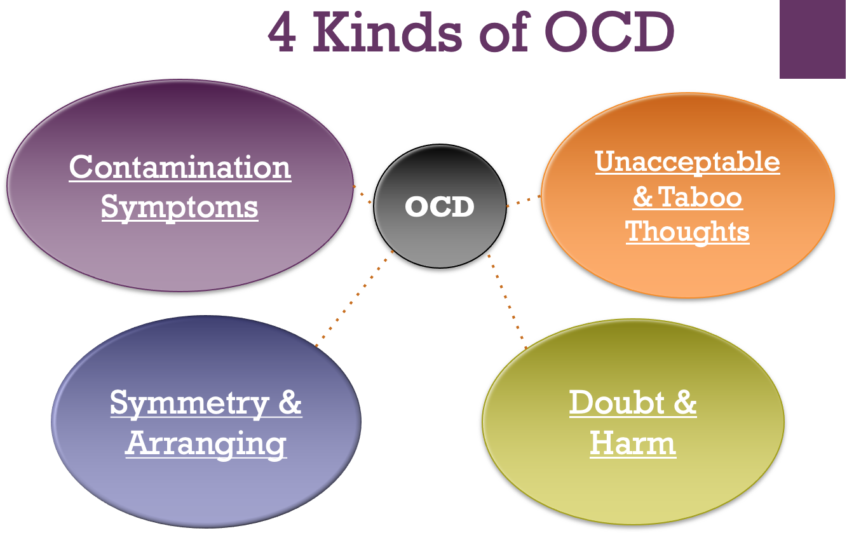Suppose you find yourself unable to resist the impulse to engage in the same pattern of thoughts (obsessions) or actions (compulsions) again and over again. In that case, you are undoubtedly affected by OCD.
OCD is an Obsessive-Compulsive Disorder, though it’s common, a long-lasting disorder and leads to mental disorders. Let’s discuss its type and the mental illness associated with it in detail.
Types Of OCD
There are many types of OCD because of wide variations in obsessions, but there are 3 major types to discuss.
Contamination & Washing
A person feels physically unclean or feels that they are mentally polluted. This fear of contamination is not limited to germs, viruses, or dirt but also household chemicals, blood, some sticky substances, and sometimes it includes various types of insects and animals. People who suffer from this OCD avoid places and situations where they feel contaminated, like public washrooms. They are always seen changing clothes frequently and repeatedly cleaning their hands and areas for satisfaction.
Doubt About Accidental Harm & Checking
If you fear unintentionally harming yourself or others by your negligence or carelessness, then you fall under this category of OCD. For example, you have a fear of hitting a pedestrian while driving a car or forgetting to close the stove before going to bed and fear losing your loved ones to fire, or you fear that the door of the house is closed or not. You have doubts, and you check them again and again, and you can call this typical type of person with such behavior “checkers.”
Also Visit: How to Get an Instant Payday Loan Online?
Symmetry, Arranging, & Counting
Perfectionism is also a major category in OCD. People are obsessed with symmetry, arranging things, and being exact in everything. A patient feels discomfort if an object placed on a table is not symmetrically aligned; thus, a person feels incompleteness. These behaviors sometimes cause magical thinking, like a person feels he would die if he didn’t align the plates on the table in symmetry.
Ocd Lead To Mental Illness
People affected by OCD consider themselves completely normal. Although some are struggling with their OCD personally, like having thoughts, some affect their surroundings and the people living with them. They thought their behavior was normal, but they are moving towards its chronic form, which causes mental illnesses.
Depression, anxiety, severe changes in mood, behavioral changes, and even body dysmorphic disorder are mental issues related to OCD. BDD is a type of mental situation where a person isn’t satisfied with one of his body parts or overall appearance. However, these flaws are self-thought but create a great problem.
Other mental illnesses that OCD causes are Generalized Anxiety Disorder (GAD), social anxiety, panic disorder and separation anxiety. A person also develops psychotic features like manipulation, hallucinations, disorganized behavior, delusions, confusion, lack of emotions, and disturbing thoughts.
How To Treat It?
People believe that OCDs are not treatable, and unfortunately, they are right. OCD is a self-developed or inborn disorder, and many people don’t consider it a disorder. But it must need treatment when it affects a person’s mental health.
OCD is treated by mental therapies, a good environment, healthy brain, body, and spirit that make a person strong enough to fight his OCD. But how can one cope with the mental illness, in addition to making himself ready to say goodbye to OCD?
You need a rehabilitation center, a particularly holistic center like holistic sanctuary rehab California, that offers peaceful, luxurious, organic, and, most importantly, individual treatment to all people. So, not only does it help in treating your mental illness but battling with your OCD and getting a healthy lifestyle.
Also Visit: Top 5 Payday Loans For the Unemployed With Same Day Approval













